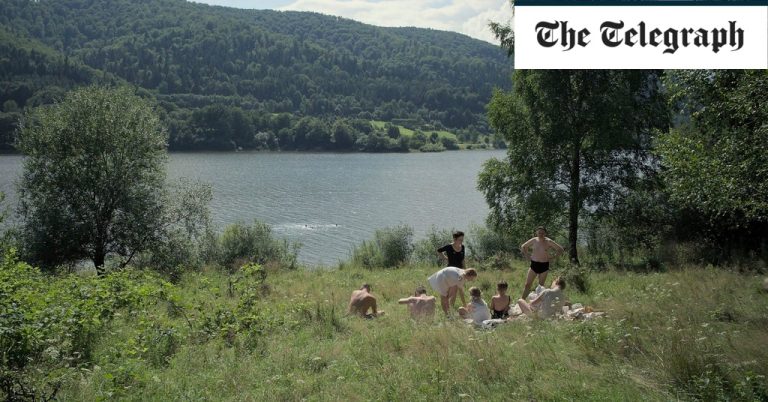Meet Rudolph and Hedwig Höss (Christian Friedel and Sandra Hüller): a young, attractive, well-to-do German couple who live with their five children in a neat, spacious house in the bucolic Polish countryside. Friends and family often come to visit: their large, well-tended garden is perfect for hosting parties, and there’s a picturesque river nearby ideal for swimming and picnics. Their main reason for living here, however, is convenience, since it’s right next door to Rudolph’s work. On the far side of the unusually tall garden wall lies the Auschwitz concentration camp, where, since the age of 38, he has served as commandant.
As the family eats dinner together, the rumble of industrialised murder can be heard faintly in the background, sometimes punctuated by a pistol crack. Later, as Rudolph contentedly smokes a cigar in the garden, the glow of its tip mimics the flames which claw at the night sky from the crematorium smoke stack behind.
For his first film since 2013’s Under the Skin, the British director Jonathan Glazer has returned with a loose adaptation of the 2014 Martin Amis novel The Zone of Interest, but very little of the source apart from the bones of its premise remains. Amis’s book was like PG Wodehouse via a nightmare – a sort of Arbeit Macht Frei, Jeeves, in which a handful of Auschwitz bosses witter on about their professional, social and carnal travails.
Glazer drops the fictional characters and presents instead the actual historical figures, even shooting on an exact reproduction of the Hösses’ grace-and-favour house. This building becomes the film’s base of operations: every room has been rigged with multiple static cameras which coolly survey the family’s daily routine – recognisable, everyday stuff spiked with moments of pure cruelty and outrage, as their activities and conversations have to in some way accommodate the monstrous happenings just outside.
Hedwig jokes about her friend having misunderstood her when she described a new fur coat as having come from “Canada”: the name of the storage facility used to house the Jewish inmates’ pillaged belongings. And when her mother visits, the two idly speculate whether a Jewish neighbour the older woman used to clean for is “over the wall”. Such a pity, they go on, that they missed out on her lovely curtains in the auction of her belongings when she was rounded up.
